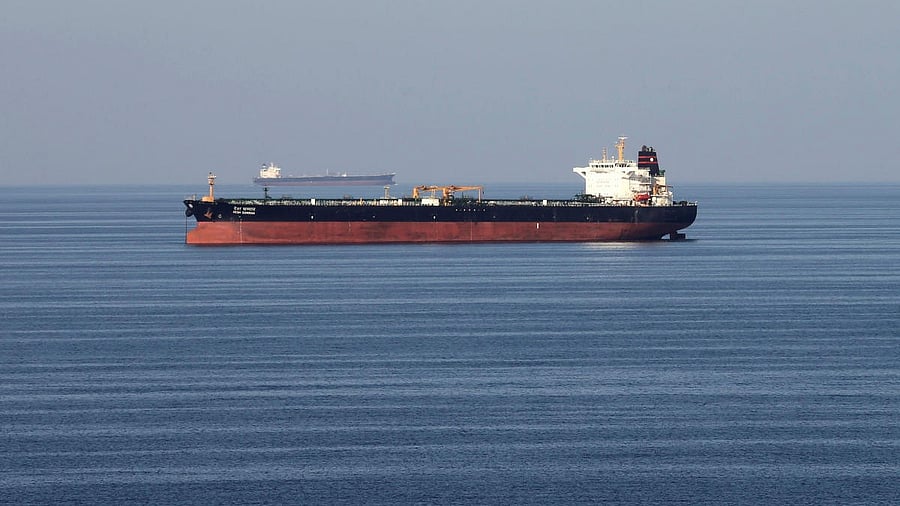
Oil tankers pass through the Strait of Hormuz.
Credit: PTI Photo
The Strait of Hormuz holds strategic importance as it is the world’s single most important oil passageway, forming a choke point between the Arabian Gulf and the Gulf of Oman.
As per an Al Jazeera report, the 39 km strait is the only route to the open ocean for over one-sixth of global oil production and one-third of the world’s liquified natural gas (LNG).
In the wake of the recent unrest in West Asia, Iran has threatened to close the strait. This could have massive impact as the sea passage is strategically located in terms of shipping and normal maritime traffic to and from the strait through a pair of established two-mile-wide shipping lanes.
According to reports in TMZ, the closure of the strait could lead to drop in oil price, which would have a cascading impact on the world economy.
The blockade of the strait could also lead to retaliation by the neighbouring gulf countries aligned with the US whose economies heavily rely on oil and natural gas.
Shutting the Strait of Hormuz would also risk alienating Iran’s foreign partners like China, which imports major amounts of Iranian and other Middle Eastern oil.
“China does not want the flow of oil out of the Persian Gulf to be disrupted in any way, and China does not want the price of oil to rise,” said the Transversal Consulting President Ellen Ward.
Apart from this, Iran is also dependent on the shipment of oil and natural-gas for the growth of their economy. The disruptions to seaborne commerce would have other impacts on the regime in Tehran.
